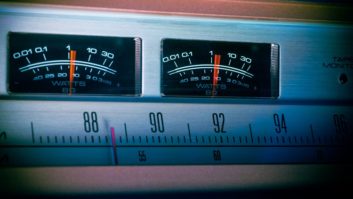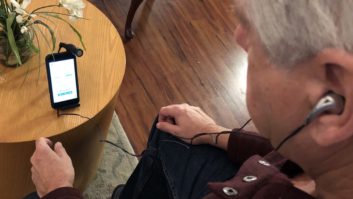Kenneth MacHarg is frustrated by what he sees as radio’s lax attitude toward preparation and pronunciation.
Don’t listen to a station for a least a year after you have worked there.
This was the warning of a friend as I exited a station about five years ago. In the years since, I have become convinced that one should not listen to radio at all if they have ever worked in that medium. It’s just too frustrating.
As a freelance journalist, I often work abroad. But as I tune across the dial of domestic stations and listen to the variety of formats, I wonder what has happened to quality.
I’m not talking here about the quality or sterility of radio formats; that’s a discussion for another time. I refer to the quality, or lack thereof, in the execution of formats that sound like they are just thrown on the air.
A few examples will suffice:
* Skill – Back in the years B.C. (before computers), when commercials were cued on tape or set up on carts, it seemed that even the high-school weekender who was responsible for most goof-ups could meet the network news dead on. Perhaps I shouldn’t complain, with so few stations even using network news anymore, but for those who do, would it be possible to get everything wrapped up on time without a cacophony of music finishing, a prerecorded ID with jingle and the network sounder all on the air at the same time?
What about that public radio station I hear each morning, arriving at the BBC news 10 seconds early and allowing us to hear the tail end of the billboard for a program that we will never hear, or entering the news in progress Wally Ballou-style? The same goes for our local NPR station, which covers much of the national news with program promos, news, underwriting announcements, traffic reports and other such clutter and oftentimes can’t get back into Morning Edition on time.
And, can live announcers going into the network news no longer synchronize the instrumental that brings the hour to a close with the legal ID that ends with the network sounder? That’s a much more professional sound than the interruption of a vocal in progress for the canned ID.
* Earphones – The last time I checked, there were still a number of companies producing high-quality earphones for use in radio studios. If these modern marvels are placed over the announcer’s ears while on the air live, the operator/announcer will know instantly that a song and commercial are playing while he/she is giving the weather. Continued use of the earphones when off the air, combined with turning off the microphone switch, enables the announcer to hear similar technical problems before a listener has to call in and report them.
* Automation – Granted, mechanical execution will involve occasional gremlins, just like live engineering and announcing. The question is, doesn’t anybody listen to his or her station anymore? Automation screw-ups can continue for hours, offering dead air or garbled transmissions and nobody seems to notice. If the format is too unbearable for station personnel, perhaps that old fallback of contracting with a 24-hour diner to monitor whether things are running smoothly might be in order.
Broadcast English
* News – I shouldn’t even get started in this area, and will limit my remarks. Back when news anchors were well-trained, there was the admonition not to begin each news story with the word “well.” Well, that idea seems to have been forgotten. The local chicas on one station’s 10 p.m. newscast in our market begin almost every story with that word, as do at least three anchors for CNN, one on Headline News and two on CNN International.
* Writing – OK, I’m cheating, for this also is a news item. And it has nothing to do with the verbless writing to which we are subjected every day on TV and radio. (In that regard, my wife, a professional ESL teacher, no longer recommends that her students listen to the news to practice hearing English. The grammar is horrible.) The problem here is just a poor command of the English language and its grammatical points.
One recent example is in the coverage of the Egyptian Siamese twins who were separated. Why did I hear several news reports concerning “the two twins?” It seems to me that twins imply two. But then, I never was good at math.
* Pronunciation- Maybe it’s because I’m a news junkie, but I just have to throw in one more news-related gripe. If local stations insist they are going to do national and world news rather than leave it to the experts at the networks, they need to learn how to pronounce things correctly.
For example, the capital of Uruguay is pronounced Mon-tey-vih-day-oh, not Monte-video, and when the pope elevates a person to sainthood, the process is be-at-ih-fication, not beet-a-fication. Just two enlightened examples actually heard on the air.
* Preparation – How often have you heard a metro-style traffic report end with, “this report was brought to you byyyyy … Joe’s Garage?” Or a certain music hostess on one classical music station who is always saying, “We just hearrrrddd …” The voice goes up as the announcer extends the word while scrambling to fill in the blank. Come on. Have the info ready before you go on the air.
* Annoyance – Programmers should work to attract and keep listeners, not annoy them so that they change the channel. Why must we hear “Newsradio XXX, WXXX in-depth, team coverage” repeated so many times in a half hour that it takes up time that could have been used to include another news story or two? Such repetition is akin to the monotony of dripping water, and its overuse renders the concept meaningless.
Why do I gripe so? Perhaps I’m getting old and grouchy. Or maybe it’s because I love radio and want to hear it done well.












